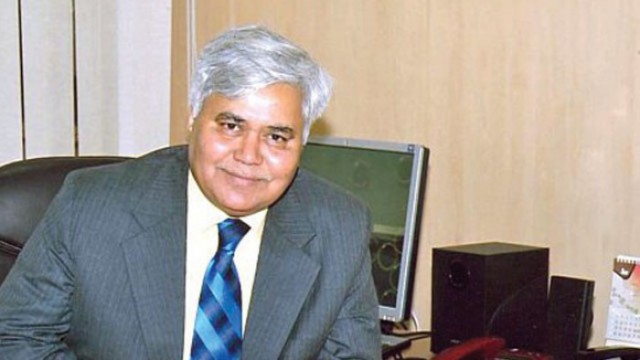
TRAI Chairman R.S. Sharma
A plan by Facebook to deliver free limited Internet access to India’s poor and rural communities was delivered a blow this morning after the Telecom Regulatory Authority of India (TRAI) declared the plan would violate Net Neutrality and banned it.
TRAI’s ruling focused on the fact the proposed plan would only allow customers to access Facebook and other partnered websites the social network elected to let users access over its free service. The regulator declared no service provider in India will be allowed to offer or charge discriminatory rates for data services based on content.
The regulator relied heavily on the ISP License Agreement in its ruling, which requires subscribers to have “unrestricted access to all the content available on Internet except for such content which is restricted by the Licensor/designated authority under Law.” TRAI went further in its Net Neutrality declaration than regulators in the U.S. and parts of Europe, proclaiming price-based differentiation “would make certain content more attractive to consumers resulting in altering online behavior.” Under those terms, India has effectively banned the practice of “zero rating,” which exempts certain so-called “preferred content” from metering charges or counting against a customer’s usage allowance.
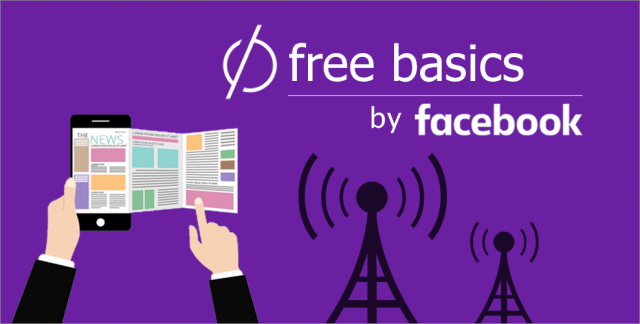 “This is a big win for Indian consumers and Net Neutrality,” said Independent MP Rajeev Chandrasekhar. “This is a very powerful and positive first step taken by TRAI. The days of telcos controlling regulations and regulatory policy is over and it is consumers to the fore.”
“This is a big win for Indian consumers and Net Neutrality,” said Independent MP Rajeev Chandrasekhar. “This is a very powerful and positive first step taken by TRAI. The days of telcos controlling regulations and regulatory policy is over and it is consumers to the fore.”
Facebook’s Internet.org and its companion free mobile web service, now dubbed Free Basics, offers stripped-down web services without airtime or usage charges, targeting basic so-called “feature phones” that were common in the U.S. before smartphones. Facebook has targeted the free service on about three dozen developing countries including the Philippines, Malawi, Bangladesh, Thailand and Mongolia. India would have been Facebook’s largest market for Free Basics, until the telecom regulator effectively banned it.
In India, Facebook CEO Mark Zuckerberg’s frequent entries into the debate, including a passive-aggressive OpEd widely panned in India, was seen by many as arrogant and counter-productive. Facebook’s ongoing campaign to enlist users’ active support of the project for the benefit of India’s telecom regulator created a row with the Office of the Prime Minister, that dismissed Facebook’s public relations defense of Free Basics “a crudely majoritarian and orchestrated opinion poll.“
A misleading astroturf campaign only infuriated the government more after Facebook users (including some in the U.S.) were greeted with an invitation in their timelines to support “digital equality,” sponsored by Facebook. Regulators were flooded with form letters, only later to be informed many were misled to believe it indicated their support for Net Neutrality.

Facebook users across India (and some in the U.S.) were invited by Facebook to defend “digital equality,” which critics define as “opposing Net Neutrality.”
“Facebook went overboard with its propaganda [and] convinced ‘the powers that be’ that it cannot be trusted with mature stewardship of our information society,” said Sunil Abraham, of the Center for Internet and Society in Bangalore.
Initially, Internet.org included Facebook and a handpicked assortment of content partners, including the BBC, that were allowed on the free service. Net Neutrality proponents accused Facebook of creating a walled garden for itself and its preferred partners, disadvantaging startups and other companies not allowed on the service.
Unlike in the United States where Net Neutrality was a cause largely fought by netizens, websites, and consumer groups, major media organizations in India helped coordinate the push for Net Neutrality. The Times of India and its language websites like Navbharat Times, Maharashtra Times, Ei Samay and Nav Gujarat Samay appealed to other broadcasters and publishers to remove themselves from Internet.org. NDTV, a major multi-lingual broadcaster running multiple 24-hour news channels, often promoted Net Neutrality on the air and encouraged Indians to support it.
Like in the United States, Indians faced a telecom regulator more accustomed to dealing with government officials and telecom companies. TRAI was quickly swamped with over one million comments in support of Net Neutrality, so many that invitations for future comments were moved to another government website that made it harder for consumers to address regulators. The unexpected level of support for Net Neutrality also led Facebook to change its Internet.org service and relaunch Free Basics as “an open platform.”
But websites included in the service still cannot contain data intensive product experiences, such as streaming video, high-resolution images and GIFs, videos, client or browser side caching or file and audio transfer services.
“Facebook defines the technical guidelines for Free Basics, and reserves the right to change them,” adds the SavetheInternet.in coalition. “They reserve the right to reject applicants, who are forced to comply with Facebook’s terms. In contrast they support ‘permissionless innovation’ in the US.”
In India, the argument has boiled down to whether the country would prefer a usage-limited open Internet platform for the poor or an unlimited experience for a handful of websites. TRAI prefers enforcing rules guaranteeing users can visit any website they want, even if the free service used comes with a usage cap.
It’s a major blow for Facebook and the telecom operators that were some of the service’s biggest defenders.
[flv]http://www.phillipdampier.com/video/NDTV Net Neutrality India 2-8-16.mp4[/flv]
Net Neutrality is now law in India, where the telecom regulator exceeded the United States by completely banning zero rated services, which allow users to avoid usage charges for certain applications or websites. (2:03)
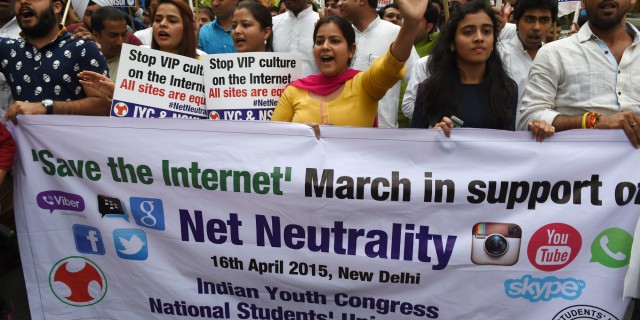
Activists of Indian Youth Congress and National Students Union of India shout anti-government slogans during a protest in support of Net Neutrality in New Delhi on April 16, 2015. (Image: MONEY SHARMA/AFP/Getty Images)
”COAI had approached the regulator with the reasons to allow price differentiation as the move would have taken us closer to connecting the one billion unconnected citizens of India,” said Rajan Mathews, director general of the Cellular Operators Association of India (COAI). “By opting to turn away from this opportunity, TRAI has ignored all the benefits of price differentiation that we had submitted as a part of the industry’s response to its consulting paper, including improving economic efficiency, increase in broadband penetration, reduction in customer costs and provision of essential services among other things.”
In a statement, a Facebook spokesperson said: “Our goal with Free Basics is to bring more people online with an open, non-exclusive and free platform. While disappointed with the outcome, we will continue our efforts to eliminate barriers and give the unconnected an easier path to the Internet and the opportunities it brings.”
TRAI rejected industry claims that differential pricing will enable operators to bring innovative packages to the market.
India has 300 million mobile users but there are still nearly one billion Indians without Internet access. India is an important market for Facebook, with 130 million active Facebook users — second to only the United States.
Allowing Facebook to gain a foothold in rural India using zero rating was compared with British colonialism by Vijay Shekhar Sharma, the founder of PayTM — an Indian mobile payment system. He called Free Basics a trojan horse — “poor Internet for poor people” and referred to it as the colonial-era East India Company of the 21st century.
“India, Do u buy into this baby Internet?” Mr Sharma tweeted in December. “The East India company came with similar ‘charity’ to Indians a few years back!”
“Given that a majority of the [Indian] population are yet to be connected to the Internet, allowing service providers to define the nature of access would be equivalent of letting [operators] shape the users’ Internet experience,” TRAI said in its release.
Telecom operators should be able to adapt to a market that bans zero rating, analysts believe.
“Telecom service providers may not be happy with this notification,” Amresh Nanden, research director at Gartner, told NDTV News. “However, they still have the ability and freedom to create different kind of Internet access packages; as long as content is not a parameter to provide or bar access to anyone. Such practices have already started elsewhere with products such as bandwidth on demand, bandwidth calendaring etc. to create premium products.”
[flv]http://www.phillipdampier.com/video/AIB Save The Internet 1 4-2015.mp4[/flv]
All India Bakchod produced several humorous mostly English language videos teaching Indians about Net Neutrality and why it’s important. It’s a familiar case for North Americans dealing with our own telecom operators. (9:07)
An update from All India Backchod last summer alerted India to an astroturf campaign underway at Facebook and telecom operators to mislead Net Neutrality supporters. (8:02)
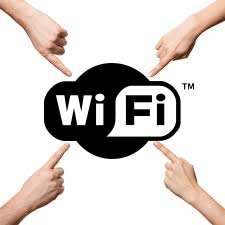 Frontier Communications CEO Dan McCarthy blames slow Internet connections on your lousy home Wi-Fi network, not on his company’s broadband service.
Frontier Communications CEO Dan McCarthy blames slow Internet connections on your lousy home Wi-Fi network, not on his company’s broadband service. Frontier Communications has promised to commit additional investment to expand and improve broadband after it completes its purchase of Verizon landlines in Florida, California, and Texas. Copper DSL customers may eventually get 25Mbps service, fiber customers up to 1Gbps. But the speed improvements have not been as forthcoming in Frontier’s original service areas, dubbed “legacy territories.”
Frontier Communications has promised to commit additional investment to expand and improve broadband after it completes its purchase of Verizon landlines in Florida, California, and Texas. Copper DSL customers may eventually get 25Mbps service, fiber customers up to 1Gbps. But the speed improvements have not been as forthcoming in Frontier’s original service areas, dubbed “legacy territories.”


 Subscribe
Subscribe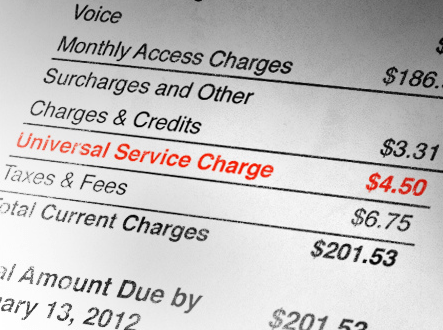
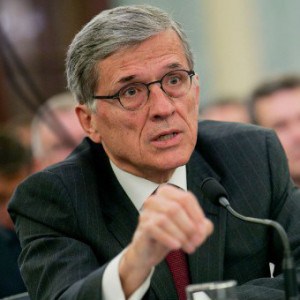
 Finding affordable wireless Internet access that isn’t speed throttled or usage capped is becoming rare, but Stop the Cap! has been exploring a provider that offers both.
Finding affordable wireless Internet access that isn’t speed throttled or usage capped is becoming rare, but Stop the Cap! has been exploring a provider that offers both.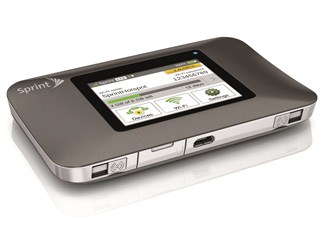 Getting service established is the first minor hurdle. Because the contract plan is intended for business use, customers will need to list a company name on the enrollment form. It is acceptable to consider yourself a consultant or use your current profession if you intend to use the service at anytime/for any reason for work or while travelling for work. No formal business registration is required. Some customers sign up using their last name, as in “Smith Consulting.” You do have to give them your Social Security number or business Taxpayer ID Number to run the usual required credit check. Most applicants are easily approved within 72 hours and Sprint will then call to help arrange for service. If you are not approved, you can agree to pay an upfront deposit and after 12 on-time monthly payments, the deposit will be returned to your account.
Getting service established is the first minor hurdle. Because the contract plan is intended for business use, customers will need to list a company name on the enrollment form. It is acceptable to consider yourself a consultant or use your current profession if you intend to use the service at anytime/for any reason for work or while travelling for work. No formal business registration is required. Some customers sign up using their last name, as in “Smith Consulting.” You do have to give them your Social Security number or business Taxpayer ID Number to run the usual required credit check. Most applicants are easily approved within 72 hours and Sprint will then call to help arrange for service. If you are not approved, you can agree to pay an upfront deposit and after 12 on-time monthly payments, the deposit will be returned to your account.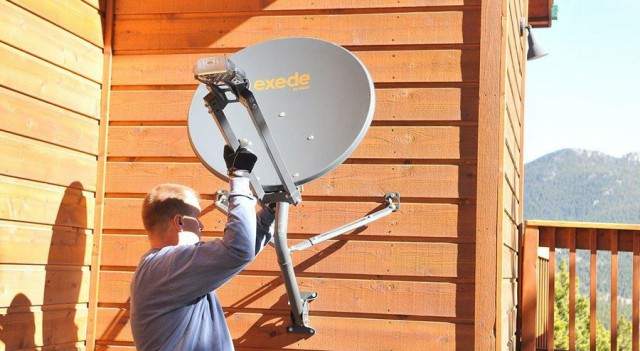 Despite claims satellite broadband has improved, our readers respectfully disagree:
Despite claims satellite broadband has improved, our readers respectfully disagree:
 “This is a big win for Indian consumers and Net Neutrality,” said Independent MP Rajeev Chandrasekhar. “This is a very powerful and positive first step taken by TRAI. The days of telcos controlling regulations and regulatory policy is over and it is consumers to the fore.”
“This is a big win for Indian consumers and Net Neutrality,” said Independent MP Rajeev Chandrasekhar. “This is a very powerful and positive first step taken by TRAI. The days of telcos controlling regulations and regulatory policy is over and it is consumers to the fore.”

